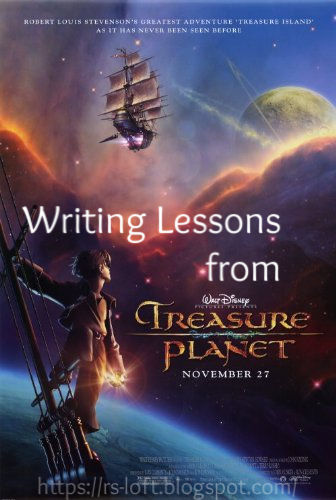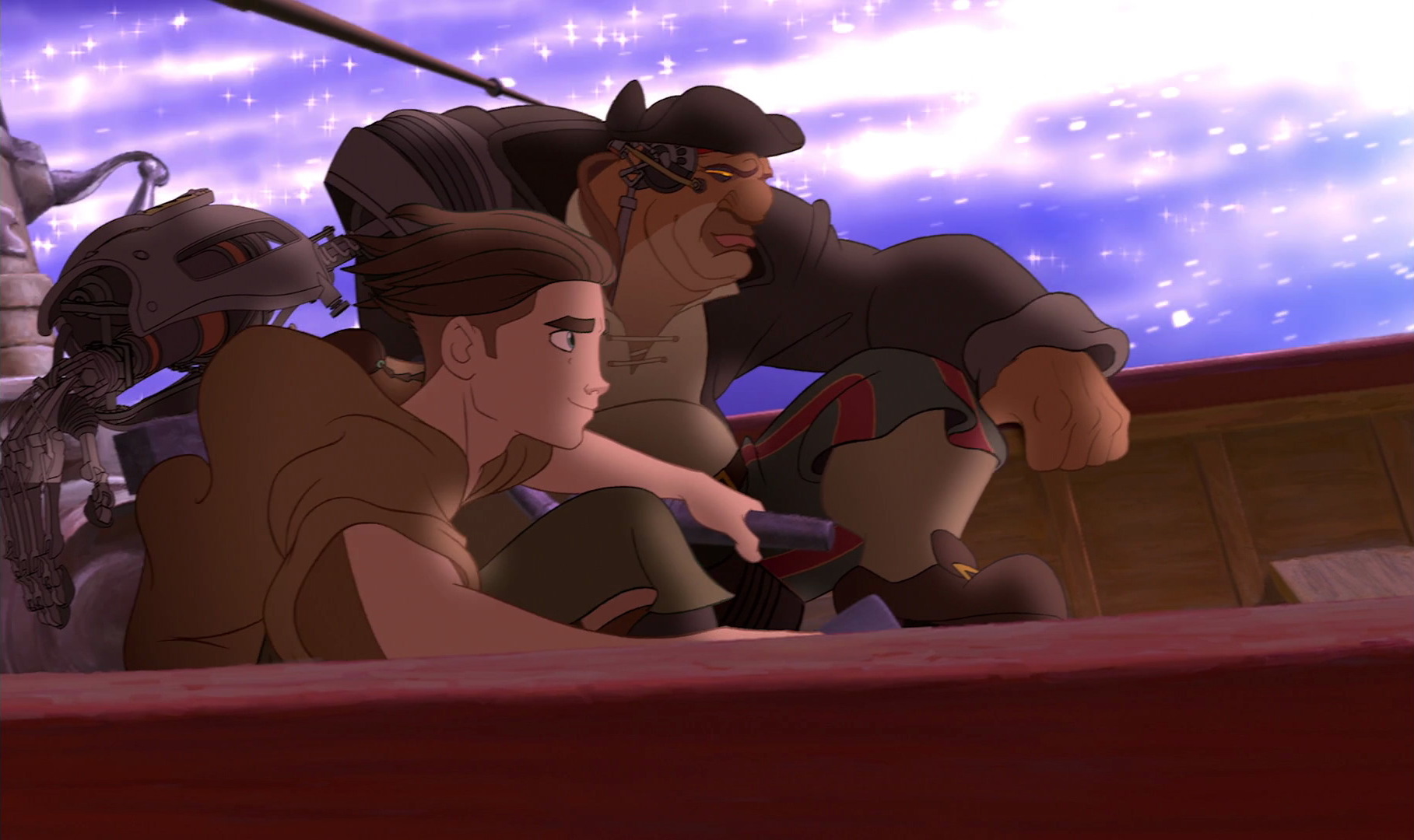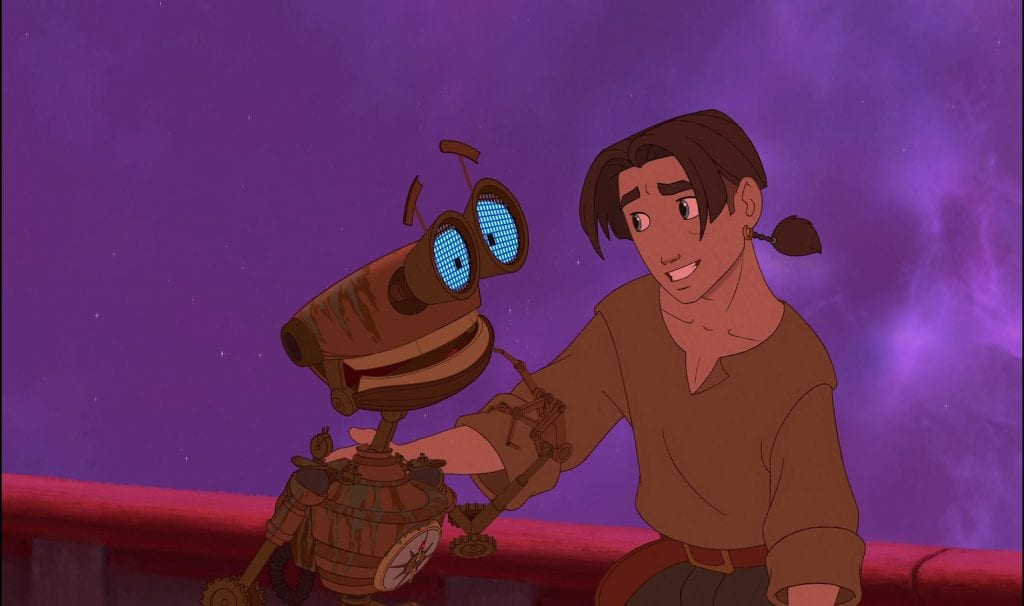Writing Tips from Treasure Planet
Of all the re-tellings out there (and there are a lot), I think Treasure Planet is one of my favorites. This Disney movie takes the story of Treasure Island, by Robert Louise Stevenson, and sets it in space. It has a great cast, amazing animation, and most importantly, was a great re-telling of the original. In this post, we're going to look at what writing lessons we can learn from it, specifically in the re-telling department.
Spoilers ahead!
1. Create great characters
Treasure Planet has amazing characters, cleverly based off their counterparts in the novel. From turning Long John Silver into a cyborg, the captain into a cat woman, and Ben into a robot with a lost memory. The most important thing is that while they are based off the book characters, they each have their own unique feel.
When re-doing a story, the first thing you need to think about is characters. Will you do the classic turn the villain into the hero? What about changing a character from human to another form? The important thing to remember is that you're not making the same character. You're giving them your own flare.
2. Foreshadowing, foreshadowing
Foreshadowing is important in any story. In Treasure Planet, it's used several times throughout the story. In the beginning, we see young Jim reading the story of Captain Flint, giving important backstory and dropping hints for the story to come. We also get some foreshadowing in other places, like Ben the robot.
When planning a novel, think of where you can drop in foreshadowing of what's to come. Drop hints about the final battle, important plot developments, or whatever else is going to be important. Sometimes that may be a slight mention, other times, it might be a strong nudge.
3. Strong character arcs
In the book, Jim Hawkins was a good boy who helped his mother with her inn. The same is true of the movie, but it takes a little longer to see it. In this version, he's got a rebellious streak, later shown to be caused by his father leaving them at a young age. Despite his rebellion and his annoyed teenager act, you quickly see that he's not a bad kid. Over the course of the movie, he proves himself to be a more selfless and obedient person.
This point is why it's important for you to change up things about your characters in a re-telling. They need to have somewhere to go, so they can have a good character arc. Do they always need one? No, but the best stories do.
4. Making a good re-telling
While Treasure Island is set at sea, Treasure Planet is set in space. There are massive space ports, space galleons, and amazing planets. The filmmakers managed to stick to the classic's basic plot, while also changing it for the new environment and story. Most importantly, they added a few of their own touches, adding in new situations to keep people at the edge of their seats.
When writing your own re-telling, think of ways you can change things up to keep people from guessing what might happen. Since the story is probably well known, you need to do something to keep it from being predictable. Can you add a new character? Different challenges based on the setting? A completely different ending?
5. Excellent world
One of the best parts of this the alternate world they made for the story. Everything is more massive. Giant space galleons with solar powered sails and oxygen bubbles. Planets instead of islands. Laser pistols. Robots. Portals to jump from world to world. It's all fascinating and works amazingly with the story. It's sort of a space steampunk world and it's great.
When telling a story anew, plan around with the setting. What if you put it in modern times? Ancient times? Space? A fantasy world? I put my Headless Horseman retelling in the 1950s instead of the 1700s. Find a setting that can elevate your story and brings something new to it.
Have you watched Treasure Planet? What is your favorite part? What writing lessons have you learned about re-tellings? Tell me in the comments.
Suggested Posts:
Writing Lessons from Wall•E
Writing Lessons from Star Wars











Comments
Post a Comment